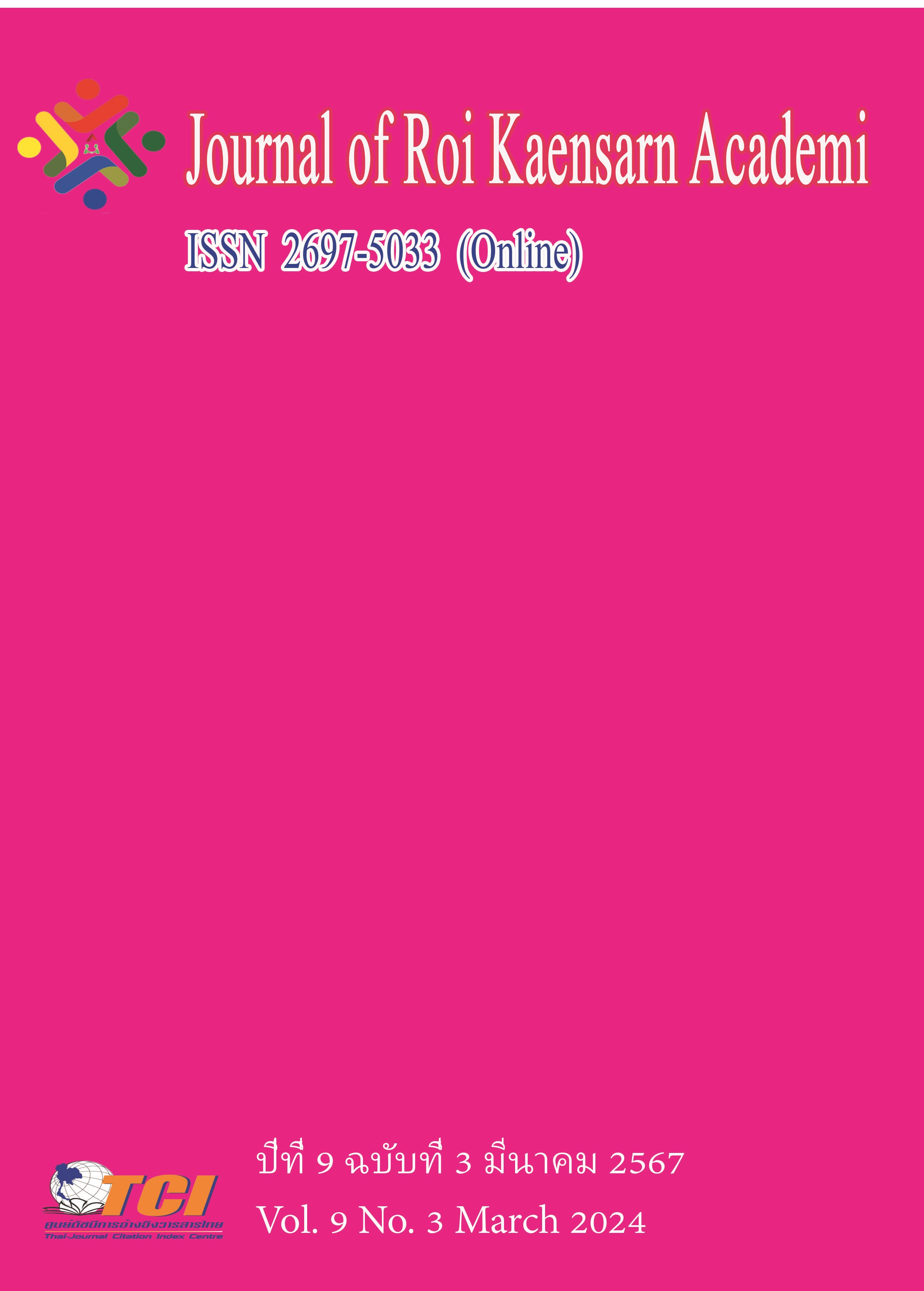Study on the Factors Influencing the Satisfaction of Students in China's New College Entrance Examination Reform
Main Article Content
บทคัดย่อ
The China's new college entrance examination is a crucial stage in the scientific selection of talents by higher education institutions, and the satisfaction of students is a key criterion for evaluating the effectiveness of the new college entrance examination reform. Based on the ACSI model, this study redefines the relevant variables and their relationship model for student satisfaction based on the new college entrance examination reform. Student expectations are considered as independent variables, while perceived quality and perceived value are observed variables, and student satisfaction is the dependent variable. The study analyzes the impact effects of various factors on student satisfaction. Using a questionnaire survey method, 308 students were sampled and surveyed, and statistical analysis was conducted using SPSS 25.0 software. Based on the research findings, the study provides recommendations.
Article Details
เอกสารอ้างอิง
Chinese Ministry of Education. (2023). 2022 National Statistical Bulletin on the Development of Education. Retrieved from http://www.moe.gov.cn/jyb_sjzl/sjzl_fztjgb/202307/t20230705_1067278.html.
Jiang, G. (2017). "Implementation Opinions": The guiding document for the new round of college entrance examination reform in China. China Examination, (02), 1-4.
Zhai, X. (2020). A study on the satisfaction of vocational students in Hubei Province with the policy of the skill-based college entrance examination. Master's thesis, Wuhan University of Science and Technology, Wuhan.
Chen, X. (2018). Research on the satisfaction evaluation index system of high school examination service for educational testing institutions based on ACSI. Master's thesis, Xiangtan University, Xiangtan.
Ge, X., & Fu, X. (2019). 70 years of the reform of China's college entrance examination system: Retrospect and prospect. Journal of South China Normal University (Social Science Edition), (06), 55-66+192.
Han, Y. (2019). Reform and development of China's university admissions system in 70 years since the founding of the People's Republic of China. Beijing Education (Higher Education), (10), 46-49.
Zhang, M., & Jin, Y. (2016). The value orientation of the new college entrance examination reform. Journal of Hebei Normal University (Educational Science Edition), 18(01), 62-66.
Liu, H. (2017). Values and principles that the college entrance examination reform should adhere to. People's Education, (Z2), 94-96.
Duan, S., & Hong, J. (2019). On the value pursuit of the new college entrance examination reform. Education Theory and Practice, 39(02), 3-5.
Bian, X., Jiang, L., & Lei, W. (2017). On the value orientation and dilemma of the new college entrance examination reform. China Higher Education Research, (04), 61-65.
Ji, Q. (2018). Examination and enrollment linkage: Values, dilemmas, and countermeasures of the college entrance examination subject reform. China Examination, (06), 10-15.
Zhang, Y., & Yu, B. (2019). "Inheritance" and bottleneck of the new college entrance examination subject plan. Journal of Ningbo University (Education Science Edition), 41(01), 46-52.
Wu, X. (2019). Adaptation of high school reforms to the "new college entrance examination": Demands, problems, and prospects—Based on the perspective of school resource development. Educational Academic Monthly, (04), 41-48.
Li, H. (2019). Reforms of ordinary high schools under the background of the new college entrance examination: Demands, problems, and prospects. Teaching and Management, (13), 1-3.
Li, Z. (2019). College entrance examination reform proposals from the perspective of talent selection in universities. Jiangsu Higher Education, (06), 31-36.
Li, H., He, J., & She, M. (2015). Measurement model and empirical analysis of satisfaction with college enrollment examinations. Statistics and Decision, (18), 109-113.
Niu, S. (2021). Study on student satisfaction with the new college entrance examination reform in Zhejiang Province. Master's thesis, Huazhong Normal University, Wuhan.
Li, Y. (2019). Investigation and reflection on the satisfaction of students in Guizhou University of Finance and Economics with the large-scale enrollment. Science. Education and Culture (First Issue), (05), 9-10.
Liang, S. (2008). Study on the relationship between high school candidates' school choice behavior and school satisfaction. Master's thesis, East China Normal University, Shanghai.
Li, H. (2011). Research on freshmen's satisfaction with college admission and its relationship with learning motivation. Master's thesis, Southwest University, Chongqing.
Zhou, H., & Long, L. (2004). Statistical test and control methods for common method bias. Advances in Psychological Science, 12(6), 942-942.
Thorndike, E. L.(1904). An Introduction to the Theory of Mental and Social Measurements.New York:Science Press.
Baron, R. M., & Kenny, D. A. (1987). The Moderator-Mediator Variable Distinction in Social Psychological Research: Conceptual, Strategic, and Statistical Considerations. Journal of Personality Social Psychology, 51(6), 1173-1182.
Hayes, A. F., & Preacher, K. J. (2013). Conditional process modeling: Using structural equation modeling to examine contingent causal processes. Information Age Publishing.

